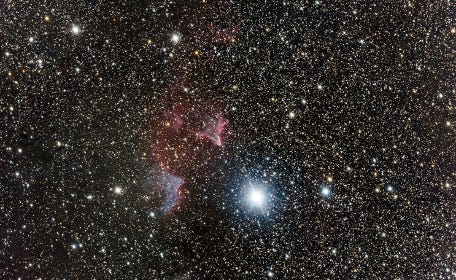In-between cosmologies
“I’m just really not convinced by those pictures,” he said to me from the backseat. “I mean, they could have been faked.” I gritted my teeth in the front passenger seat as my friend drove.
What pictures, you ask? Pictures of our earth as a sphere as opposed to being flat. You might be surprised, dear reader, to know that sometimes I have conversations like this; or perhaps you yourself have dabbled in flat earthism.
But to be honest, these kinds of conversations make me want to bang my head against the car window. How can we be here, wasting mental energy on this kind of conversation-I mean, this guy went to high school! I think.
I look back at the young man. He is smiling and deeply earnest, and somehow I doubt anything I say will help him land on my side of the fence. This doesn’t seem to bother my friend who is driving, casually engaging in the conversation as if we are talking about apple varieties. Truth be told, I don’t really want to engage in respectful dialogue—rather, I want to cram the scientific evidence down him like a wrestling move until he yells, “Okay, I recant!”
But he is a student of mine and I realize that this is not a viable option. So I say a few things and the conversation eventually moves on, no conclusions accepted.
Last week at the seminary, we had a guest lecturer, a renown Old Testament scholar named John Walton. He specializes in understanding the Ancient Near East worlds in which the Old Testament was written, so we can both more deeply understand the texts but also see where the Bible differs with and sometimes challenges other ancient texts.
He said something that struck me deeply as he was talking about the vast differences regarding how the ancient world understood cosmology. “In the biblical account,” he said, “God makes no attempt to revise people’s cosmology.” In other words, God doesn’t reveal that actually stars are hot balls of gas and the sun is farther away than the moon. In fact, according to Walton, they believed that the sky was material and could hold back the waters above as well as a deity (p.16). God worked within their understanding of how the universe functioned.
As a missiologist, I study culture—and I teach how God often uses the culture-rituals and symbols- of the people within the Biblical worlds to communicate so they can understand. But for some reason, Walton’s observation about cosmology really challenged my frustrations regarding these kinds of conversations. Maybe the point of the conversation is not to convert them to a more accurate view of God’s world? If anything, it is deeply revealing regarding how he is making sense and meaning in the world. So is it just expending fruitless energy? But given the unfortunate results of Church’s often uneasy and sometimes antagonistic relationship with science (Galileo’s fate as one of many examples), shouldn’t Christians be delighting in pursuing the truth of God’s world even while recognizing the ongoing mystery? What are your thoughts?
*John H. Walton, The Lost World of Genesis 1, Downers Grove: IVP Academic, 2010.


